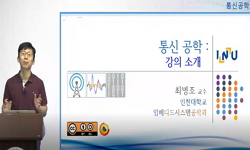Just like other foreign language education, the final goal of Chinese language education is to have free communication in Chinese. For the improvement of communication ability, it is very important to acquire the modal particles in Chinese because it ...
http://chineseinput.net/에서 pinyin(병음)방식으로 중국어를 변환할 수 있습니다.
변환된 중국어를 복사하여 사용하시면 됩니다.
- 中文 을 입력하시려면 zhongwen을 입력하시고 space를누르시면됩니다.
- 北京 을 입력하시려면 beijing을 입력하시고 space를 누르시면 됩니다.
https://www.riss.kr/link?id=A100970106
- 저자
- 발행기관
- 학술지명
- 권호사항
-
발행연도
2015
-
작성언어
Korean
-
주제어
modal particle ; corpus ; error analysis ; textbook analysis ; chunk ; 어기조사 ; 말뭉치 ; 오류분석 ; 교재분석 ; 말 덩어리
-
KDC
820
-
등재정보
KCI등재
-
자료형태
학술저널
- 발행기관 URL
-
수록면
513-536(24쪽)
-
KCI 피인용횟수
1
- 제공처
-
0
상세조회 -
0
다운로드
부가정보
다국어 초록 (Multilingual Abstract)
Just like other foreign language education, the final goal of Chinese language education is to have free communication in Chinese. For the improvement of communication ability, it is very important to acquire the modal particles in Chinese because it is very tough for foreigners to fully understand and use the function and use of such complex and diverse modal particles in Chinese. Thus, this study conducted the multilateral research on modal particles in the aspect of Chinese language education for Korean people. Based on the preceding studies, first, this study limited the research scope to ma, ba, ne, and a. For the empirical study, 355 learning errors made by Korean students were collected by using HSK corpus, and then the analysis on errors in each modal particle was conducted. Based on the results of the analysis on errors and five-types of Chinese language textbooks published in Korea, the educational measures related to modal particles suitable for Korean students were suggested. The educational measures are largely divided into the suggestion related to textbooks, reinforcement of exercises in textbooks, application of chunk teaching method, reinforcement of education connecting with sentence structure, application of learning errors, and the use of the contrastive studies on Korean and Chinese languages. The educational measures suggested by this study would be helpful for Korean students to more effectively learn modal particles and also to prevent the fossilization of modal particles.
참고문헌 (Reference)
1 박정구, "중국어마스터(1-3권)" 다락원 2008
2 국립국어원, "외국인을 위한 한국어문법1(체계편)" 커뮤니케이션북스 2005
3 김준헌, "완전성공중국어(1-2권)" 시사중국어사 2012
4 김현철, "스마트중국어(1-4권)" 동양북스 2011
5 "북경어언대학교 말뭉치(HSK动态作文语料库)"
6 俞燕君, "韩国人学汉语难点及偏误解析" 浙江大学出版社 2011
7 胡明扬, "语气助词的语气意义" (6) : 1998
8 徐晶凝, "语气助词的语气义及其教学探讨" (2) : 1998
9 亓文香, "语块理论在对外汉语教学中的应用" (4) : 2008
10 胡明扬, "胡明阳语言学论文集" 商务印书馆 2003
1 박정구, "중국어마스터(1-3권)" 다락원 2008
2 국립국어원, "외국인을 위한 한국어문법1(체계편)" 커뮤니케이션북스 2005
3 김준헌, "완전성공중국어(1-2권)" 시사중국어사 2012
4 김현철, "스마트중국어(1-4권)" 동양북스 2011
5 "북경어언대학교 말뭉치(HSK动态作文语料库)"
6 俞燕君, "韩国人学汉语难点及偏误解析" 浙江大学出版社 2011
7 胡明扬, "语气助词的语气意义" (6) : 1998
8 徐晶凝, "语气助词的语气义及其教学探讨" (2) : 1998
9 亓文香, "语块理论在对外汉语教学中的应用" (4) : 2008
10 胡明扬, "胡明阳语言学论文集" 商务印书馆 2003
11 张斌, "现代汉语虚词词典" 商务印书馆 2006
12 李晓琪, "现代汉语虚词讲义" 北京大学出版社 2005
13 朴正九, "漢語語氣助詞的功能,體系及其敎學" 한국중어중문학회 35 : 63-81, 2004
14 "汉语语法三百文问" 商务印书馆 2002
15 王力, "汉语史稿:中册" 中华书局 1980
16 刘德联, "汉语口语常用句式3解" 北京大学出版社 2005
17 傅由, "小议语气助词“嘛”" (6) : 1997
18 付霞, "对韩国学生典型语气助词“吗、呢、吧、啊”习得情况的考察研究" 北京语言大学 2006
19 刘珣, "对外汉语教育学引论" 北京语言大学出版社 2000
20 卢福波, "对外汉语常用词语对比例释" 北京语言大学出版社 2000
21 李锐, "对外汉语中语气助词的教学研究" 西北大学 2012
22 赵新, "实用汉语近义虚词词典" 北京大学出版社 2013
23 房玉清, "实用汉语语法" 北京语言大学出版社 2008
24 周小兵, "外国人学汉语语法偏误研究" 北京语言大学出版社 2007
25 李晓琪, "关于建立词汇—语法教学模式的思考" (1) : 2004
26 徐晶凝, "中级汉语语法讲义" 北京大学出版社 2008
27 모해연, "The 중국어(1-2권)" 동양북스 2015
28 정윤철, "New 스타일중국어(1-2권)" 동양북스 2015
동일학술지(권/호) 다른 논문
-
- 한국중어중문학회
- 진명호(JIN, MYUNG HO)
- 2015
- KCI등재
-
- 한국중어중문학회
- 유경철(Yu, Kyungchul)
- 2015
- KCI등재
-
The Chinese Repository 와 The Middle Kingdom의 상관성 연구
- 한국중어중문학회
- 이보고(Lee, bogo)
- 2015
- KCI등재
-
- 한국중어중문학회
- 허윤정(Her, Yun cheng)
- 2015
- KCI등재
분석정보
인용정보 인용지수 설명보기
학술지 이력
| 연월일 | 이력구분 | 이력상세 | 등재구분 |
|---|---|---|---|
| 2027 | 평가예정 | 재인증평가 신청대상 (재인증) | |
| 2021-01-01 | 평가 | 등재학술지 유지 (재인증) |  |
| 2018-01-01 | 평가 | 등재학술지 유지 (등재유지) |  |
| 2015-01-01 | 평가 | 등재학술지 유지 (등재유지) |  |
| 2013-05-21 | 학회명변경 | 한글명 : 변화없음 -> 한국중어중문학회영문명 : Korea Association of Chinese Language And Literature -> 미등록 |  |
| 2013-05-21 | 학회명변경 | 한글명 : 한국중어중문학회 -> 변화없음영문명 : The Chinese Language And Literature Society Of Korea -> Korea Association of Chinese Language And Literature |  |
| 2013-05-21 | 학술지명변경 | 외국어명 : The Journal of Chinese Language and Literature -> Korea Journal of Chinese Language and Literature |  |
| 2011-01-01 | 평가 | 등재학술지 유지 (등재유지) |  |
| 2009-01-01 | 평가 | 등재학술지 유지 (등재유지) |  |
| 2007-01-01 | 평가 | 등재학술지 유지 (등재유지) |  |
| 2005-01-01 | 평가 | 등재학술지 유지 (등재유지) |  |
| 2002-01-01 | 평가 | 등재학술지 선정 (등재후보2차) |  |
| 1999-01-01 | 평가 | 등재후보학술지 선정 (신규평가) |  |
학술지 인용정보
| 기준연도 | WOS-KCI 통합IF(2년) | KCIF(2년) | KCIF(3년) |
|---|---|---|---|
| 2016 | 0.32 | 0.32 | 0.26 |
| KCIF(4년) | KCIF(5년) | 중심성지수(3년) | 즉시성지수 |
| 0.26 | 0.22 | 0.575 | 0.12 |




 DBpia
DBpia






